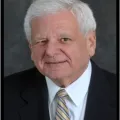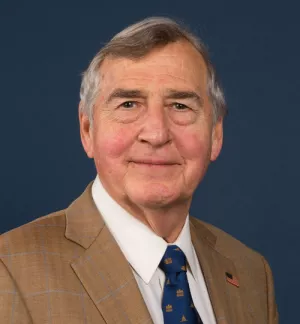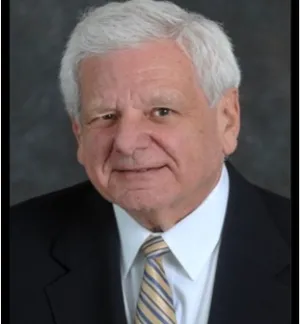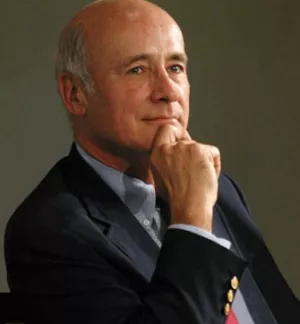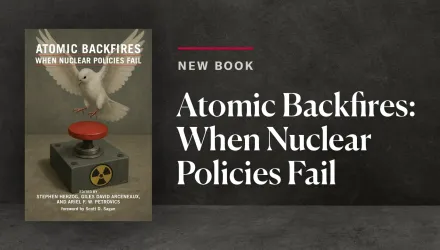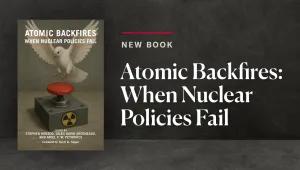Forty years ago, one bomb devastated Hiroshima. Today, there are more than 50,000 nuclear weapons, and a nuclear war could destroy civilization. Avoiding war has become a necessity. How? Hawks have had their say; doves, theirs. Now, listen to the owls.
Public debate focuses heavily on the number of weapons. Hawks fear that fewer on our side might raise the risk of war by tempting the Soviet Union to try to exploit what might look like a military advantage. They point to the weakness of the democracies in the 1930's and their failure to deter Hitler. The way to reduce the risk of nuclear war, hawks say, is to strengthen our arsenal. Their motto is 'peace through strength,' and Munich is their historical metaphor.
Doves believe that overarming increases the risk of war: Even though we might intend to deter the Russians by adding more weapons, we may increase their fear of attack and provoke them into rash action that could lead to war. Doves draw a lesson from 1941, when America cut off oil supplies to Japan in an effort to deter it from attacking Southeast Asia. Instead, this helped provoke the attack on Pearl Harbor.
Hawks and doves have a point. If we want to reduce war risks, we need policies that steer a middle course between the dangers of temptation and provocation. But the hawk-dove battle misses a more important point: If nuclear war breaks out, it may be less because of deliberate decisions than because events get out of control.
A nuclear weapon is like a crystal ball. Any sane leader can foresee the outcome of nuclear war. But a ball can be shattered by inadvertence.
Owls believe the greatest risks of such war come from events getting out of control. History is full of cases where rational decision-makers were tripped up by non-rational factors, with disastrous results. World War I is the owls' historical metaphor: Most leaders expected a short war, a quick return to business-as-usual. Instead, four years of carnage destroyed 20 million people, three empires and Europe's central position in the global balance of power.
Events get out of control various ways. During a crisis, mental stress can produce a breakdown: Stalin went into seclusion for weeks after Hitler's attack on the Soviet Union in 1941. Or in the heat of a crisis, complex organizations may be difficult to control, as President John F. Kennedy discovered when a reconnaissance plane strayed over Soviet territory at the height of the Cuban missile crisis in 1962. Communications may be sent to the wrong place or misunderstood, as happened just before Pearl Harbor. Of course, accidents can happen. False alarms of nuclear attack have occurred. When there is time, we can correct the effects of faulty computer chips or sensors, but at the height of a crisis, there may be no time.
Faced with the dangers of inadvertent nuclear war, what is to be done? Some of the owls' steps would require Soviet cooperation - for example, regular bilateral talks on crisis prevention; establishment of additional hot lines among all five countries with nuclear arsenals; multinational measures against nuclear terrorists, and sanctions against nuclear proliferators; improvement of warning systems by placing unmanned tamper-proof sensors in each other's missile fields.
Owls want America to take some independent steps. We could install on nuclear weapons on naval ships electronic safety locks similar to those on land-based weapons; we could pull back from the East German-West German border the short-range nuclear artillery that would be difficult to control from Washington in a crisis; we could improve procedures for maintaining civilian control over nuclear weapons; we could prepare top leaders far better than we do for dealing with nuclear crises.
These are only a few of the owls' recommendations; the list can be expanded. Owls have no monopoly on wisdom. Hawks and doves also possess part of the truth, but their preoccupations have overly dominated national debate. If we are serious about reducing the risks of nuclear war, we should pay attention to owls.
Allison, Graham, Albert Carnesale and Joseph S. Nye. “Of Hawks, Doves - and, Now, Owls.” The New York Times, July 31, 1985


